Confidence steered Jwala and Ashwini, and in turn India, towards their first-ever doubles World Championship medal for badminton in 2011 at Wembley and kicked off a decade in which singles stars PV Sindhu and Saina Nehwal would follow the trailblazing duo onto the Worlds podiums every single Championship year.
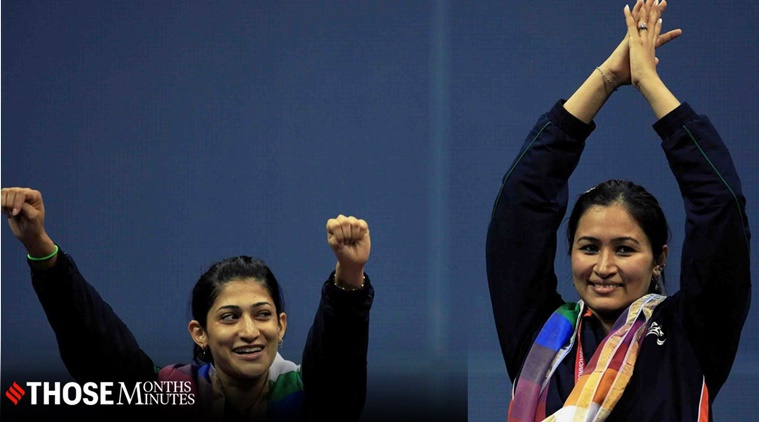
Everyone knows Jwala Gutta loves to fire the opening salvo. It comes entirely from her playing credo: “You can’t be a good doubles player if you can’t serve well.” The first shot sets the tone.
After she split with Shruthi Kurien at the start of 2009, Jwala was scouting around for potential partners to play with. Her mixed doubles career with V Diju was going swimmingly well as they’d beaten the Korean World No. 1s that year and entered the Top 10.
But before she zeroed in on Ashwini Ponnappa, she sprung a thunderbolt on her mother by almost sending the daughter-mother entry for the Nationals that year. Her mother ticked the only box that Jwala sniffed around for, when deciding partners: “I didn’t really have to think a lot. Mom’s serve was very good.” Jwala knew she could mop up the rest.
This confidence steered Jwala and Ashwini, and in turn India, towards their first-ever doubles World Championship medal for badminton in 2011 at Wembley in London, and kicked off a decade in which singles stars PV Sindhu and Saina Nehwal would follow the trailblazing duo onto the Worlds podiums every single Championship year. Jwala-Ashwini’s was the first medal since Prakash Padukone won in the 1980s.
“When I decided to play with Ashwini, she wasn’t even a Top 4 in India. I just saw in her that no fear of losing, and knew I could mentor her,” Jwala says.
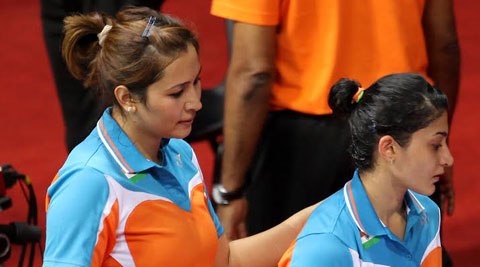
Doubles was Jwala’s battlefield where she needed only an ally. “I really could combine well with anyone – Diju of course, Chetan, Vidyadhar, Gopi also, Shruthi,” she explains. “Only this – the partner should be able to serve properly.”
So when a friend and batchmate pointed out the whiplashing Ashwini to her at the nationals, Jwala wasn’t distracted by what was Ashwini’s very-noticeable big booming smash. “My friend told me – she smashes really hard. I immediately asked, but how’s her serve. I don’t care about the smash as long as it’s hit at the right time and right place. I’m not bothered by how hard she hits. I watched her at the start of the rally – her serve was fine. She was still young.” The pair was good to go.
More than callow, Ashwini – a fearless, formidable, free-spirited hitter – wasn’t pickled in the ways of doubles, where plenty of mental disintegration gets induced.
“At the start of the rally, that’s where you put pressure on the opponents. Top pairs understand the importance of a good serve that opponents struggle to return. I always got my points when I served well,” Jwala says.
Those incisive all-noticing eyes analysed the scene before her like a computer processor when Jwala served.
“I was observant even as a junior. Where is the receiver’s foot facing? How’s he holding the racquet? Which weakness must I attack….” there were a dozen cues that Jwala would factor in when she set out to serve.
Ashwini reckons they combined seamlessly and beyond the obvious advantage of being a left-right combo.
“She had a great serve. And I focused on what I had to do,” Ashwini says. A part of the reassurance that Ashwini brought to the court for Jwala came from Ashwini’s unalloyed conviction in her own smash. Polite and always soft-spoken, Ashwini though takes blazing pride in her smashing where the hissing thwack could well be pronounced as “but of course”.
The bite to the smash comes from Ashwini’s total rejection of breaking it down. The Ashwini smash is just one Macbethian uninterrupted striking down of the axe in one fell swoop.
At the start of this decade, the young and agile Ashwini could rain down 15-20 smashes one after another. She didn’t just eschew nuance in that shot – she chewed and spat out violently any notions of prettying up her whippy welt.
“I just know one smash – that’s my smash,” she says with rare curtness, if one asks her to dissect her favourite flogging action with a badminton racquet. “There’s very little touches there,” she says shredding all pretensions to artistry. “It’s like a hockey whack,” the proud Coorgi raises the violence meter, “it’s a lot about power and just doing it. No thinking. When I’m smashing well, I’m just flying on court.” It’s never not good – the Ashwini smash.
“I’m not apprehensive about what’ll happen after I smash. I’m not scared of losing.”
Out of this fiery pair of prides – Jwala: unquestionable of her serve and Ashwini: unrepentant of her smash – was forged India’s first and hitherto only doubles medal in the World Championship.
But first came the dazzling of Delhi.
***
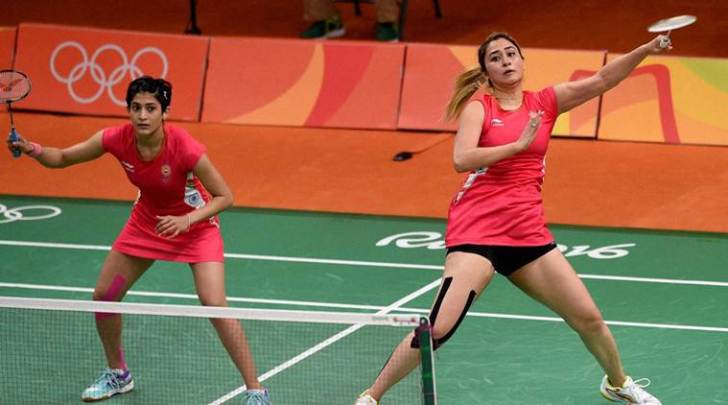
When they got together in 2009, India was racing towards hosting of the 2010 Commonwealth Games, an event that singlehandedly provided the impetus to unearth and groom a bunch of medallists across sports.
The budgeting had changed immediately after the 2006 bronze at the Melbourne CWG, four years after India lost the team bronze in Manchester. “Melbourne was our first mixed team medal. It put us in the ‘A’ list of priority sports. Exposure trips increased from 2008-9 to prepare for the CWG. Dedicated doubles training started and I was on the court nearly 8-9 hours a day morning and evening,” Jwala recalls.
In came the Indonesian Master Shifu, Indonesian Atik Jauhari, who smiled compulsively and cracked the whip in training with even more gnashing teeth. “He brought in positivity and believed in me,” Jwala says.
Her frequent disagreements with coach Pullela Gopichand over how much to train and how much to compete (an intractable problem that persists with players to this day), had unsettled her from the task at hand though she and Diju emerged as the cleverest pairing on the circuit in 2009 when they made the year-end Super Series Finals. “We’d won Chinese Taipei and Bitburger. But the whole perception changed after CWG for badminton and I was happy to be part of it,” she says.
Though it started with a bout of sneezing and allergy as Delhi’s dust and heat got to her that October, and she was bed-ridden. But the Commonwealth Games had been a jet booster to many Indian athletes, who revelled in being prioritised and taken care of for the first time ever.
“For the first time, I’d play in front of my family because they couldn’t afford to travel. I really enjoyed playing on home turf in front of my parents,” Jwala remembers. The belief translated into India’s 33rd gold that helped the hosts level with England on the medal tally.
Jwala had played on all 12 days without a break in front of a packed Siri Fort. “You could hardly hear the shuttle, I told Ashwini ‘let’s just focus on the next point’.”
Like her serve, Jwala tends to look ahead only at Round 1 of any tournament. No muddling the head with conjectures of a semi-final. “That’s a stupid way of looking at tournaments. Always only focus on the next point,” she bosses. Jwala also always fronted the media even when she lost, never disappearing from the backdoor and remained aggressive and animated on and off the court.
The surge took the Indian pair past the Malaysian top team and then she combined with Diju to secure India’s first win over the top English pairing which had Nathan Robertson, till then unsurmountable.
She addresses a long-pending allegation over her questionable fitness – as combatively as ever. “If I wasn’t fit, I wouldn’t have dominated. Yes, I don’t have the athletic body type, but you don’t have to look muscular to be able to hit,” roars the southpaw. “People said I was a slow mover. But i was really tall. I didn’t need to scramble!” she says.
Accustomed to questions being thrown at her because both Diju and a yet inexperienced Ashwini remained soft-spoken, Jwala gleefully stabbed at questions while speaking her mind unfettered.
The gentleness and bottomless patience she reserved for the only one who she believed deserved it: her younger partner Ashwini.
“Not just on court, I decided to take her along through the whole media-training-competing routine. I never referred to any situation as ‘you’ or ‘me’. It was ;us’” always. I’d patiently correct her strokes by telling her not to take stress and be fearless always,” Jwala remembers.
Ashwini was soaking it all up like a sponge. “The programme was structured with coach Atik and specialised coaching. And the 2010 win was a miracle booster. It was our biggest win as a pair,” Ashwini says.
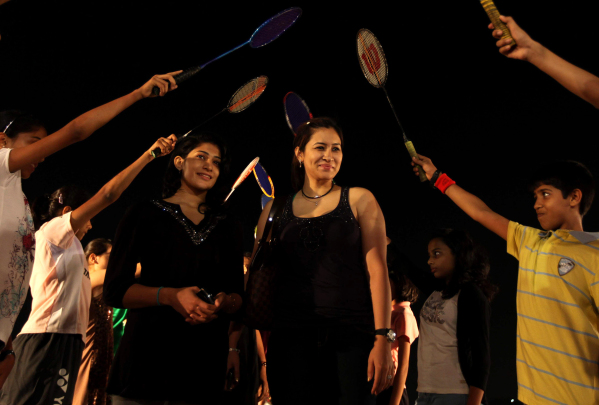
It was the beginning of Ashwini learning a very important drill from Jwala, something that suited her own unhassled temperament. “I remember starting this at the Sudirman Cup where I could really switch on and switch off. We’d do well in a match and relax,” she recalls of the thriller against the Thais that the Indians won 21-19 in the third. Indian doubles was taking its infant steps and Ashwini remembers learning something as basic as where to stand on court and what worked and what didn’t. In the lead-up to the Korean Open that year, Jwala-Ashwini had eked out a 22-20 in the decider against Hong Kong and another confidence-enhancing three-game win against the Japanese.
London was only the pair’s second World Championship together and they’d strung up some good results at the French Open in the run-up. Her trainer Declan had travelled that year and Ashwini recalls a rare time when playing well coincided with having fun. “Sometimes you don’t enjoy the journey and the wins and losses don’t matter. But I remember being able to switch off the pressure and just having a lot of fun playing that one. I loved being in the stadium,” she says of a happier time.
Declan not only put her mind at ease about recovery but also pointed out something that the painfully shy woman shrugged off like a jumper.
“Declan told me I should not look down on the floor and always walk with chin up and head high. I remember doing it all consciously and how it helped my confidence and I walked tall,” Ashwini remembers.
The fidgety nervousness that comes with being impatient on court and in finishing points (botching them) was left behind at home, as Ashwini distinctly recalls walking slowly and calmly on court and not scurrying about cluelessly.
The Indians started against the Americans where Wembley’s unique atmosphere had to be internalised. “It’s a different atmosphere at Wembley because the crowd there is always blackened out so the spotlight is on the shuttle. Courts tend to appear brighter and you have to adjust to the visibility,” Jwala recalls. Indians would win 9, 18 against the Americans.
Unseeded and running into World No. 2 was familiar as was being pipped in the opener 21-19 – the result against Room Lok Yan and Tse Ying Suet, wasn’t. “We were prepared because their serves weren’t as good though they were good at defence,” Jwala sensed her opportunity to pounce. “Even after losing the first game, I was confident.” They won 19-21, 21-10, 21-17.
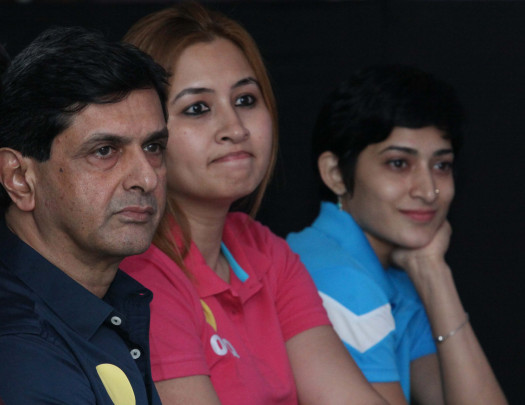
Up next were the Indonesians who seemed to have taken the Indians lightly and combined that with their own iffy confidence levels. Jwala is quick to acknowledge that Vita Marissa is a bit of a mixed doubles legend, but on the brink of her retirement and a reputation to guard, the Indonesian was under pressure.
It wouldn’t have helped her that Jwala had x-rayed her defence down: “On the brink of retirement, Vita wasn’t a great mover. She could smash hard but couldn’t hit as many times. Tiring her out was the plan.”
Feeding her drops bringing her to the net, the weakening limbs and the under-confidence saw Jwala preying on her tiredness. And while Ashwini peppered her from the back with smashes, Jwala would use the big boomer to soften her for a further bag of deceptions: her wicked serve.
The garden variety backhand serves in doubles don’t offer much variety for the Serve Queen. “Vita not being confident enough to return my serve made me even more adventurous.
“Even the low serves have variety. There are 5-6 variations even to that width so you keep opponents guessing,” Jwala says with glee of a web she weaves at the outset that eclipses the rest of the rally. Her antennae were buzzing even as Ashwini had to stay in front because the shuttle was coming back very fast.
Typically, Jwala takes 2-3 rallies to get a complete read on her opponent: “I focus on movements. I just remember how I lost my last point. If I win a point, I try to win on the same strategy. But you can’t think too much or brood over a lost point.”
Receiver’s styles got 3D imprinted on her mind, and her superior anticipation that afforded just 2-3 chances even when she played singles, helped her give clear succinct serving instructions to Ashwini. The Indian duo chipped away at the 17-21 first set reversal for a 17-21, 21-10, 21-17 win.
She remembers feeling a shiver of excitement on the podium thinking of her parents. “I showed emotion that day though after reaching semis, where we were assured of the medal, we did nothing unusual. Same things – though we might have eaten at a Chinese restaurant.” After the semis against the Chinese including the legend Zhao Yunlei was lost – 14, 16, it struck her that something historic had been achieved by the really unheralded pairing.
Ashwini remembers a happy time. “We dealt with pressure well against the Indonesians and knew we had created history because only Prakash Sir had a Worlds medal before us from India. Always being compared to singles used to be maddening,” she laughs.
She doesn’t remember any rancour associated with the Worlds medal. “We were in a good space. We had good meals, we laughed a lot,” she says.
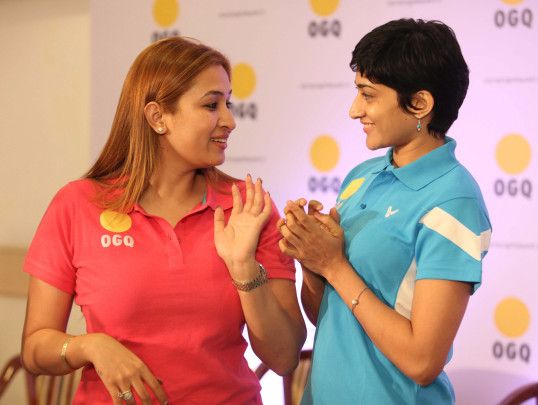
Reactions in India were underwhelming – the duo reckon out of ignorance. “There was no reception and now I think that was strange. Later, the way Sindhu was received was wow. Ours was no big deal for anyone. There were no questions about why doubles wasn’t doing well, so no celebration of when we did well either,” she says.
Ashwini says the bronze ought to be put into perspective. “Maybe, doubles was not as decorated as singles. But ours was historic, right? The first one for women. Kids can look up to us. If you’re comparing, we had little support, no endorsements. But not being received when we came back hurt a little.”
Doubles itself changed a lot – faster and tougher to get points. “We worked hard, nobody can fault us on effort. We were smart on court. We played quite often to prove ourselves in what weren’t the easiest of times,” she says.
It was when her support system – parents, brother, then boyfriend-now husband huddled around her. “Getting into the zone was tough playing doubles back then. We would get bogged down with one loss. And people would be questioning us. I’m grateful my family understood what I was going through,” she says. One of the reasons the medal sits in her parents’ home.
Finding an oasis of good form, a good vibe and success amidst the storm became doubly challenging when London itself threw up one giant tantrum. “There were riots raging in London that time. It used to be an adventure just going to the stadium. They started after we landed. We would go under shuttered restaurants for our meals. We even got out once through the backdoor. Having never been in such a situation, it was erm… different,” Ashwini says. Young and adventurous, they even afforded themselves a tingling of excitement finding beauty in breakdown.
Jwala remembers an incident opposite Wembley. “We witnessed some rioting from across the street. It was quite disturbing. But you know what happens right in such situations – after every match, we would just forget about the match, look for food, enjoy every morsel and be grateful for the basics. So effectively, we didn’t let a win settle into our system. We hardly discussed the match. It was about playing – going to a nice place to eat – walking a lot and only ensuring we were safe.” In other words, living in the moment – with all its warts and all.
A year on, London would give Jwala-Ashwini another heartbreak at the Olympics. “It was unfair and disappointing that some teams tried to fix the draws and jeopardised our chances. We had gone there well prepared. But that Japan / India / Chinese Taipei situation – it was just sad.”
It’s a scab best reserved for dark moments. But London for Ashwini will always be about India’s least-known World Championship medal and finding her heroic moment of glory and pride amidst chaos of the famous city up in flames. They can almost remember it all in slow motion, such was the drama of the bronze that came out of fire.
source: http://www.indianexpress.com / The Indian Express / Home> Sports> Badminton / by Shivani Naik / June 25th, 2020

